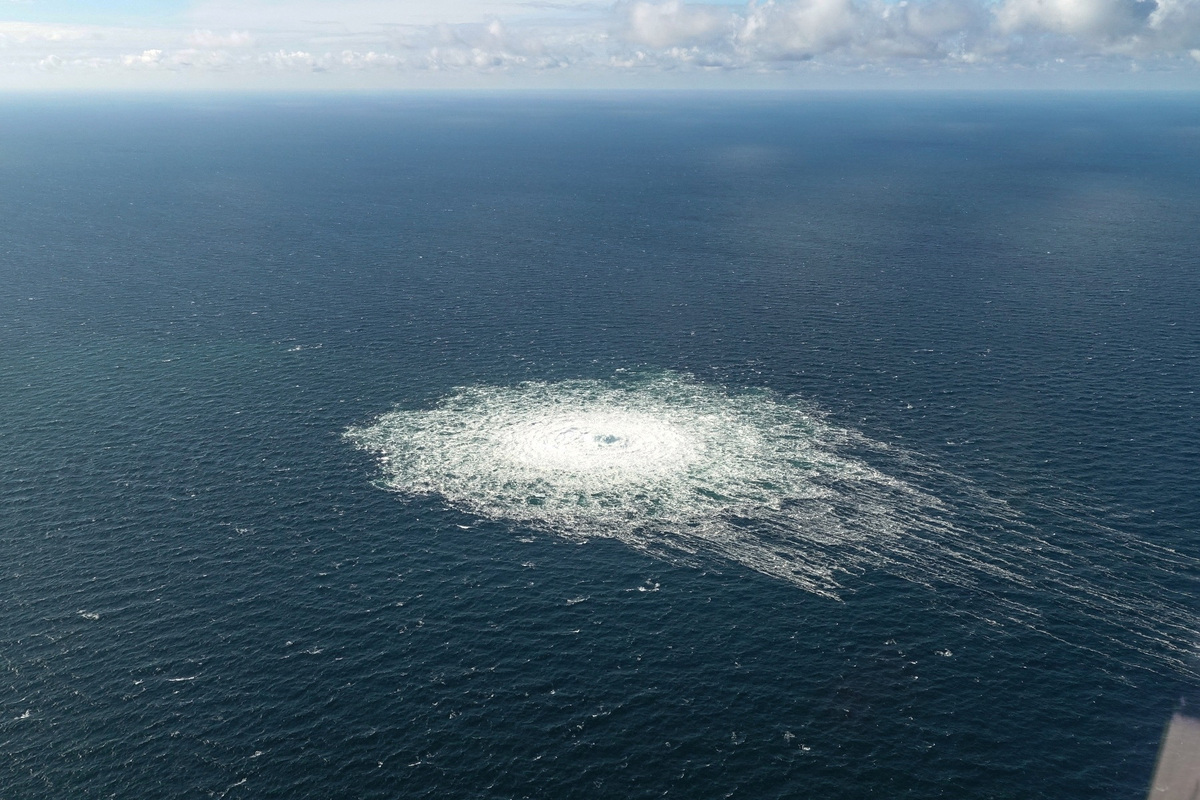US owes an explanation after Nord Stream revelations
By Andrew Korybko | chinadaily.com.cn | Updated: 2023-02-16 09:26

Last September’s bombing of the Nord Stream pipelines prompted a flurry of accusations about who was responsible. The US-led West and its allied mainstream media claimed that Russia destroyed its own strategic energy connections with Germany out of spite and somehow got away with it despite the attack occurring in the NATO-controlled Baltic Sea. For its part, Russia accused the US of carrying out this sabotage as part of its Hybrid War and called for an impartial multilateral investigation.
No such investigation has been forthcoming since all parties have suspiciously excluded Russia from this process, which also conspicuously lacks transparency in all respects. It was within this scandalous context that Pulitzer Prize-winning journalist Seymour Hersh, who’s famous for exposing the US’ My Lai massacre during the Vietnam War and its abuse of prisoners in Iraq’s Abu Gharib prison, published his revelations about what his unnamed inside source claims really happened to the Nord Stream pipelines.
In Hersh’s article about How America Took Out The Nord Stream Pipeline, he reported that the CIA colluded with Norway to plant explosives on the underwater infrastructure project that was later detonated remotely. The two sides exploited annual NATO drills in the Baltic Sea as the cover up under which this was done, after which US President Joe Biden eventually authorized them to blow up the pipelines a few weeks afterwards.
American officials predictably denied this reputable journalist’s latest report and dismissed it as “fake news”, yet it nevertheless raises uncomfortable questions. Objective observers already doubted the West’s official narrative about last year’s explosions since it doesn’t make sense that Russia would unilaterally sever its strategic energy connections with Germany, especially since the potential resumption of those pipelines could have provided it with valuable funds for its future budgets.
Moreover, it’s unthinkable that Russia could get away with this scot-free without leaving a shred of evidence at the scene seeing as how NATO completely controls the Baltic Sea. What the West and its allied Mainstream Media were asking everyone to do was rubbish their critical thinking in favor of blindly accepting the “politically correct” narrative about what happened. For that reason, most folks were always in favor of extending greater credence to Russia’s claims that the US carried out this attack.
After all, as Hersh reminded his readers, leading American officials from President Biden to Secretary of State Antony Blinken, National Security Advisor Jake Sullivan and Undersecretary of State Victoria Nuland all publicly threatened the Nord Stream pipelines. Radoslaw Sikorski, who used to serve as Poland’s defense and foreign minister prior to his present position as a member of the European Parliament, also scandalously thanked the US after the incident in a now-deleted tweet.
These public statements all contributed to average folks expressing skepticism towards the “official narrative” about what happened, the sentiment of which was just unexpectedly been exacerbated by Hersh’s bombshell report. Considering the unlikelihood of the US ever admitting its reported complicity in this incident that many are nowadays inclined to suspect it of having, the onus thus falls on Germany to demand a comprehensive explanation for the explosion of its strategic energy pipeline with Russia.
The EU’s de facto leader was coerced under American pressure into taking a hard line against Russia since the start of Moscow’s ongoing special operation in Ukraine, which resulted in the abrupt “decoupling” of their hitherto mutually beneficial economic and energy relations. Nevertheless, Berlin also had an official stake in the damaged pipelines, which means that the US reportedly attacked its top European partner that also happens to be one of its own NATO allies too.
Failing to publicly pursue Hersh’s revelations would result in Germany appearing weak, which could discredit its coalition authorities who are already under growing pressure over the self-inflicted economic damage dealt to their country by complying with the US’ anti-Russian sanctions demands. Had the Nord Stream pipelines not been blown up, then the scenario would always have remained of them reopening upon the end of the Ukrainian Conflict and thus alleviating Germany’s economic-energy crisis.
Furthermore, some decision makers in Berlin might have considered exploring the possibility of encouraging Kiev to reach a compromise with Russia with a view towards eventually reopening the Nord Stream pipelines in that scenario. The resumption of mutually beneficial Russian-German economic and energy cooperation would have bolstered Berlin’s strategic autonomy vis-à-vis the US, thereby preventing Washington from reasserting its declining unipolar hegemony over the EU.
However, the damage inflicted upon those pipelines by last September’s terrorist attack derailed the realistic chance for that chain of aforementioned events to transpire. In the aftermath, the US was able to reassert its unipolar hegemony over the EU upon depriving the bloc’s de facto German leader of the possibility for resuming mutually beneficial strategic cooperation with Russia, not to mention the additional profits that US energy companies stand to gain from more expensive exports to the EU.
These objective observations combined with the details contained in Hersh’s latest report to raise very uncomfortable questions about the US’ complicity in the bombing of the Nord Stream pipelines. It’s incumbent upon Germany, as the EU and NATO state most directly affected by this sabotage, to publicly demand a comprehensive explanation from the US. Declining to do so would signal weakness, risk discrediting the ruling coalition and could be interpreted as Washington forcing Berlin to stay silent.
Andrew Korybko is a Moscow-based American political analyst.
The opinions expressed here are those of the writer and do not necessarily represent the views of China Daily and China Daily website.
If you have a specific expertise, or would like to share your thought about our stories, then send us your writings at opinion@chinadaily.com.cn, and comment@chinadaily.com.cn.
























